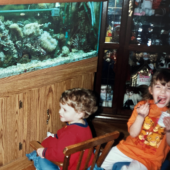
Abstract: Gaining a better understanding of human behavior change is vital to encouraging individuals to adopt an environmentally sustainable lifestyle and to the long-term goal of preserving nature. To explore how life experiences lead to the adoption of environmentally sustainable behaviors, this author turned to autoethnography. Through this reflective method, the author examines their development of environmental identity and their experiences with nature, as they relate to major concepts within the field of conservation psychology, such as ecological literacy, Theory of Planned Behavior, and connection to nature. Leading concepts concerning environmental identity in the conservation psychology literature suggest a very specific pathway for developing environmental identity, and thus pro-environmental behaviors, including experience in nature from a young age, the presence of an environmental mentor, and access to environmental literature. However, the author reveals that there may be other pathways to development of environmental identity, which include virtual environmental mentors (e.g., nature TV show hosts), environmental media (e.g., magazines, documentaries, and internet sources), and other methods of driving emotional connection to nature (e.g., sense of place). Alongside the author, the reader will have the opportunity to consider their environmental experiences and factors influencing their environmental identity, in relation to these major concepts within conservation psychology.
Continue Reading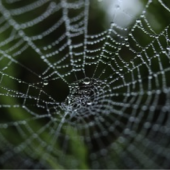
In our state of acute global crisis, we urgently need new leaders. In this short essay, I would like to sketch out my vision of such a new kind of leadership.
Continue Reading
Environmental education (EE) strives to strengthen the ecological literacy of individuals and society. Guiding individuals along their own journey toward a deeper ecological literacy should be a central tenet of any EE program, and at least a complementary piece of programs in other closely related fields like experiential and adventure education, sustainability education, ecotourism, the natural sciences, conservation biology, public lands advocacy, wilderness-based therapy, ecopsychology and human rights and social justice. Regardless of their background, expertise, or actual job title, environmental educators should consider themselves key players in guiding individuals along their personal journey towards a deeper ecological literacy.
Continue Reading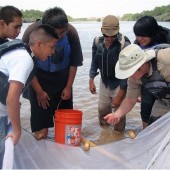
Maceo Carrillo Martinet calls for bringing the local geography of sustainability into STEM (Science, Technology, Engineering, Math) curricula, all the while framing this call in the global context of climate change. He makes a convincing case, based on the experiences of the Instituto Querencia in New Mexico, for using three principals to guide STEM curricula: students as agents of change; diverse cultural perspectives enrich the curriculum; and involve the local community—wherever you might be—in the curriculum.
Continue ReadingThis article discusses how living systems principles can inform educational design. It describes a theoretical framework for creating academic learning experiences as organic wholes that sustain learning verve. The framework is intended to aid educators in awakening a felt sensation of aliveness, vibrancy, and self-organizing creativity in a group of learners. It seeks to create […]
Continue ReadingSince its founding, the Center for Ecoliteracy, where Zenobia Barlow is executive director and Michael Stone is senior editor, has supported and advanced education for sustainable living in K–12 schools. One of our particular concerns has been leadership and systemic institutional change. We have sought to understand both how schools can themselves change and how […]
Continue Reading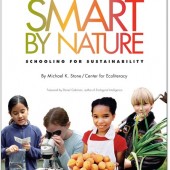
In this inspiring essay, Capra and Stone take us beyond the trite use of the word “sustainability” to an operational way of applying it in the educational setting. They outline four universal principles that should guide sustainability education, each with a profound implication for how learning occurs. They then show how the principles can be applied through a “curriculum that is anywhere learning occurs,” including lunchtime in the cafeteria and the design of the school campus. Their book Smart by Nature: Schooling for Sustainability expounds on the principles and learning-anywhere ideas laid out in brief here.
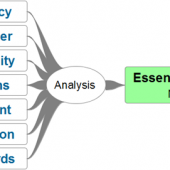
Bryan Nichols calls out to JSE readership to get involved in defining what essential ecoliteracy includes. His comprehensive, interactive methodology has worked from a literature search-and-survey analysis to create a mind-map of the domains and components of essential ecoliteracy. Readers can find out more here; then play with the mind-map online and send Nichols an online or print survey.
Continue Reading